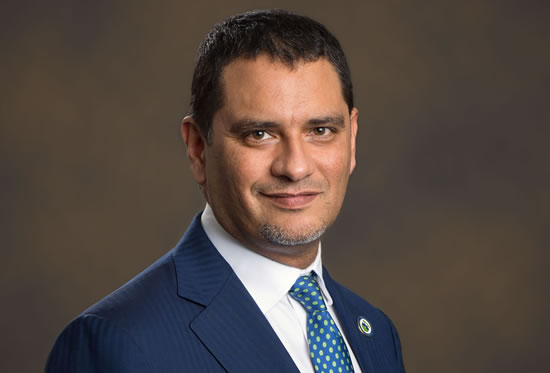LEHMAN COLLEGE
An Interview with José Luis Cruz, Newest President of Lehman College
By Dr. Pola Rosen & Lydia Liebman

José Luis Cruz, President of Lehman College
Education Update (EU): What is your primary goal at Lehman College?
President José Luis Cruz (JLC): One of my main goals is to increase the impact this institution has on the Bronx. Lehman is the only four year CUNY college in the Bronx. The CUNY system is historically meant to promote upward mobility to the underserved and we are especially in a poor area thus making Lehman very important. If we are to advance CUNY’s mission of propelling people into the middle class and beyond, it is Lehman who impacts CUNY as whole. We would like to double the graduation rate by the year 2030. We would like to award 90,000 degrees by 2030. We call it The 90 by 30 Initiative. It would make us the top contributor to education in the Bronx.
EU: What are some of the most popular degrees at Lehman?
JLC: Our top degrees are Business Administration, nursing and the health fields, counseling and speech. They are very popular. We have a great track record of placing our students in jobs. As we move forward we are seeing that there are more opportunities for students in traditional STEM fields. We also have a BRIDGE Program with City College Engineering where students do a couple of years here and then transfer. Our students in biology and chemistry all have access to graduate research.
EU: What is the future of technology at Lehman, in your opinion?
JLC: There are reasons for optimism. We will reap the benefits of all the new technology and we will be in a position to blunt the negative effects that those technologies have on the way society operates. I am hopeful that by focusing our attention to not only preparing our kids for jobs but also by being more civically engaged that we will get the best out of technology. We are moving at a very fast pace on the technology front.
EU: How does one fund their education at Lehman?
JLC: About 60% of Lehman students receive financial aid grants. A significant percentage incur no out of pocket costs to attend the college.
EU: Can one study music or art at Lehman?
JLC: We have a wonderful musical theater program that is doing excellent work. Our faculty is top of the line. The concert series that we put together is very important for us as an anchor institution. We see us as a cultural center. We bring over 150,000 people to our performances and even sporting events a year. We also have an art gallery that hosts thousands of students.
EU: What are some of the challenges you have faced?
JLC: In terms of challenges, it’s more a question of how do we better engage in the community we serve while managing the financial constraints we all face. We have been able to arrive at a vision for the future. This vision makes it easier for us to see challenges as opportunities. We are proud of the fact that because of this vision we have been able to secure $12 million of the $53 million needed to break ground on a new nursing facility, as one example.
EU: What is the future of education in your eyes?
JLC: I think we need to figure out a way to accelerate our efforts to implement equity driven policy and practices that will allow us to expand access to a broader set of Americans. We need to figure out how to reduce tuition and find more ways to prepare students not just for jobs but for life. We need to do this fairly quickly because inequality is growing to a dangerous level. #
